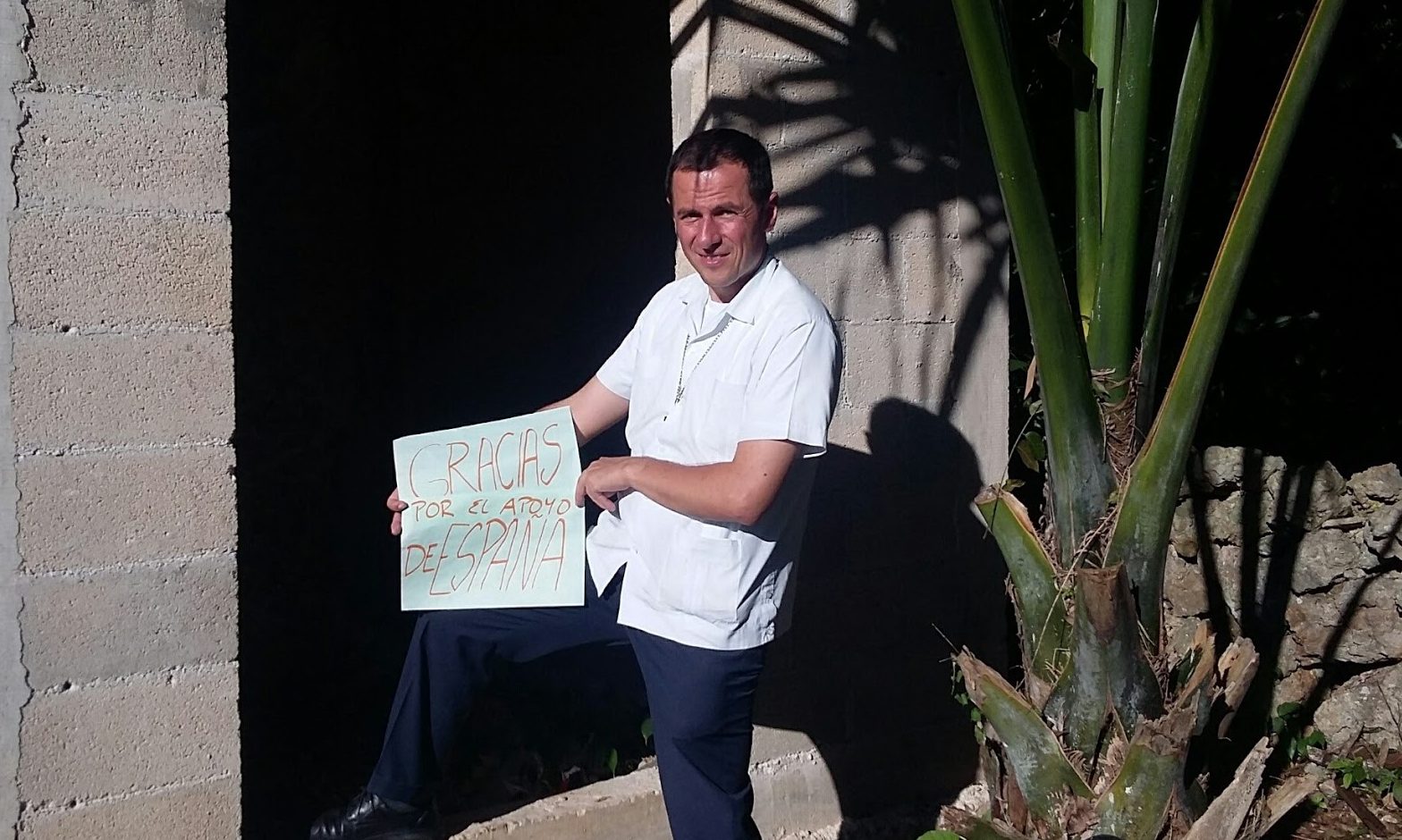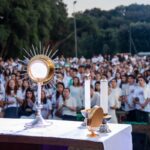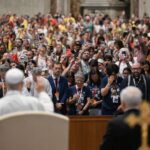Being a priest is to give “a service to the universal Church trying to be a bridge between God and men and seeking that people find the way to God,” as Father Jiri Bravec, LC, a Czech priest who oversees 44 churches in one of the poorest rural areas of the Cancún-Chetumal Prelature, defines himself.
Last summer, Father Jiri welcomed a group of Spanish missionaries from Juventud Misionera, who he affirms “have taken the taste for serving others, as they realized that their presence has made a difference.” Below you can read an interview he responded to from Lo+RC.
For you, the first experience of missions in the Mayan territory has been…
…a blessing that involves this service of the missionaries for the communities in the jungle!
Recently, you received a donation from Juventud Misionera: How did you receive it? What does it mean for the pastoral work there? What will that donation be used for?
The missionaries realized the needs of the communities. In fact, they started building the sacristy of the church in the “Señor” community. In both churches of that community, water leaks through the roof. With the 44 churches and chapels I oversee in the rural and poor area, it is very difficult to build or even maintain the structures. Therefore, I am very grateful for the contribution, which will be allocated to the communities visited by the missionaries from Spain. In fact, I immediately requested that the roof be repaired, finished, and waterproofed. And thank God, this purpose has already been fulfilled.
What have you seen in the young missionaries of Regnum Christi?
I have seen the joy of being Catholics and the great effort to know more about Christ to find the way in life guided by the Gospel. It is very beautiful to notice this among young people. I have also noticed their ability to open up to others and give testimony of faith.
What do you think they have been able to take with them from the missions in their “luggage”?
They should tell us themselves. I found them on the day they left our parish, very happy and cheerful. Although there were reasons to be tired or not feel as good as at home with all the “luxury” they live in comparison to what they have experienced here in the midst of the poor and simple environment. I believe they have taken the taste for serving, as they realized that their presence has made a difference. And I think they learned that there are people with immense faith and happiness amid adverse circumstances of poverty, injustice, or little social security. I hope the young people can return.
What does it mean to you, or how does God speak to you as a priest in this new step in the Cancún-Chetumal Prelature?
This is a diverse service compared to what we experience in Europe. It requires a lot of availability to meet the needs of the faithful, endure the always hot and humid climate, serve distant communities, understand an indigenous culture… The parish has 35 communities covering more than 5000 km2 (which is the size of some dioceses in Spain). There is a great need for priests and missionary laity. There is a hunger for God and suffering of various kinds. I am sent to anoint wounds with the oil of mercy.
What is the state of the Prelature: its needs, its strengths…?
It is a very particular place. 50 years ago, there were 5 priests; today, more than 100. The city of Cancún did not exist then; today, it has 1.3 million inhabitants. The growth is immense, and the challenges are accordingly: lack of traditions, structures, new pastoral approaches are needed, for example in tourism, migration, etc. At the same time, we have the Mayan zone, rural, poor, with its language, culture, and traditions that are being maintained while evangelizing.
We can say that steps have been taken for the prelature to mature enough to be established as a diocese with all necessary elements. That is why we are creating or consolidating the required structures: establishing and building parishes, deaneries, founding a seminary to train local priests, creating the ecclesiastical tribunal, etc. The availability of priests is well known, although they cannot keep up with the demographic growth. People are open to God and faith. At the same time, we face the growth of sects and issues like drug problems and teenage pregnancies. So, there are many strengths and many challenges.
Any message for them?
As Pope Francis says: “We are a mission.” I wish everyone to live it, in the joy of the Gospel, wherever they are. It is beautiful to experience that people allow themselves to be challenged by God, sometimes through fragile instruments that we are.
And if I can repeat another phrase from the Pope, I am grateful that he says “pray for me.”











